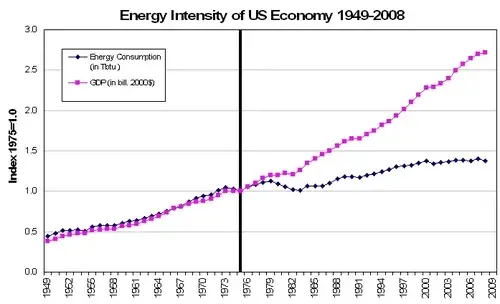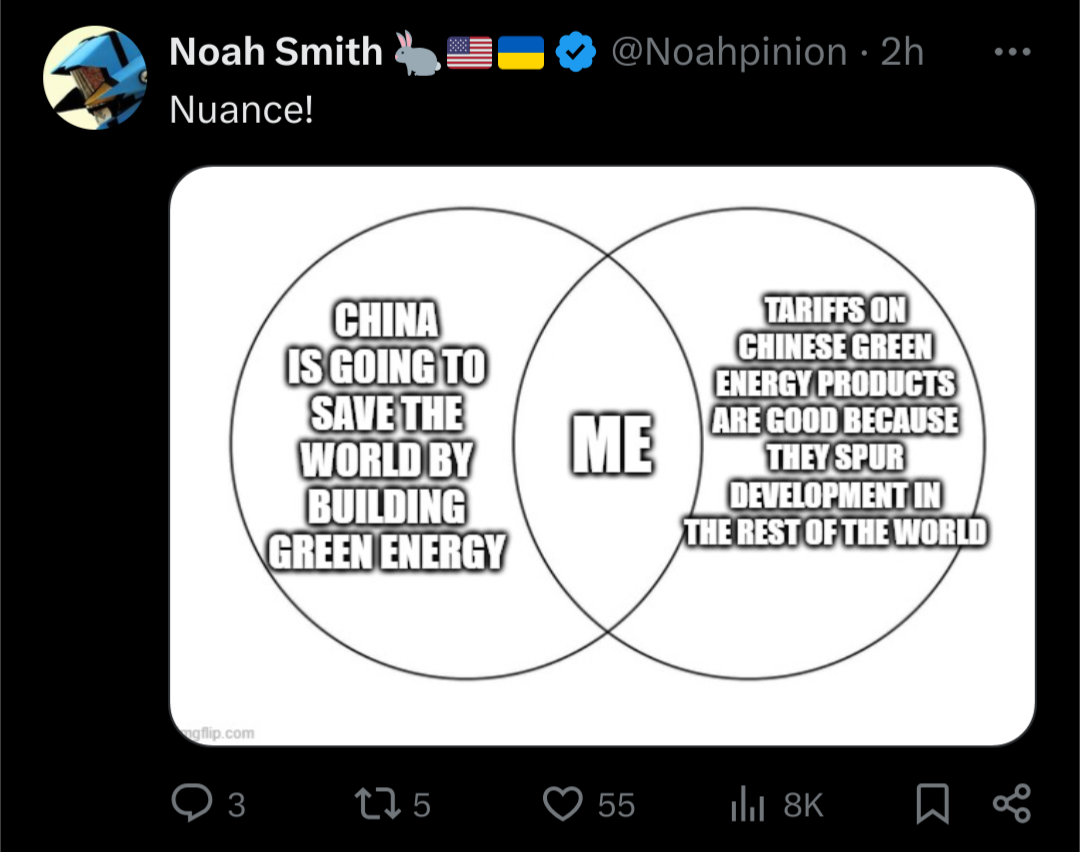I ran into this article today and its says some things that are so weird I don't even know how to refute it properly. So I was wondering if you all have some thoughts on it. But I would suggest not wasting your time if you don't know who this guy is.
First, he seems to be really mad at degrowthers. I don't know what degrowthism entails exactly. Maybe there is a Degrowth LLC somewhere with a Chief Degrowth Officer who has laid out the official degrowth position. I have personally always FELT (I have no evidence) that supply chains are designed to push down costs rather than resource usage. A liberal will conflate the two but a large part of the costs is labour costs and labour costs are "artificially" suppressed due to imperialism. A large part of why developing countries are not allowed to develop is that it would drive up their wages and thus the costs of goods and services that global north nations buy from them. But he seems to think that degrowth means that we should go back to the copper age to keep emissions low which seems disingenuous to put it kindly.
Then there is stuff like this:
Dematerialization, not offshoring, is what has allowed U.S. GDP to continue to increase at a more-or-less steady clip even as we’ve reduced our usage of energy, fresh water, copper, aluminum, and other metals, as well as our carbon emissions.
This is presented without evidence.
What is dematerialization? I am not sure but this part hints at what it is:
Think of the classic movie American Graffiti. George Lucas depicts his memories of a 1950s world where young people have fun, hook up, and get social status by driving around in cars all day and all night. This is hugely resource intensive. Nowadays, kids can have fun with their friends by chatting, sharing stories, and playing video games online. They can use Tinder to hook up instead of cruising around. And they can get social status by accumulating Facebook likes, TikTok views, and Twitter follows. Thus, young people have been ditching cars for smartphones. That means less gasoline burned, less steel and aluminum used, and so on. But more fun ultimately to be had.
He seems to be saying that what was once done by cars is now done by software. Software is, simplistically put, an arrangement of ones and zeros that creates value out of thin air. Hence, dematerialization. He seems to acknowledge somewhere that the computer industry has material resource usage at all points but I think he sees it as less than what cars consume or a lump sum cost that is paid for at once in advance.
What I don't understand is that how are cars and phones mutually exclusive? He draws on this Atlantic article that I am not gonna read. Also I think most kids just can't afford to have cars anymore. Also I don't think Ferris Bueller and Mean Girls depict the average school experience.
It’s certainly possible for economic growth to happen in a virtual environment with no increase in real resource use. To see this, just do a little thought experiment: Imagine simply simulating the economic growth that has already happened on Earth.
Imagine that sometime far in the future, with highly advanced technology, we create a complete, physically exact simulation of the planet Earth in 1600 A.D., complete with the minds of 554 million digitized human beings. And then suppose we simply run that simulation forward, as the digital people develop steam engines, railroads, tractors, cars, airplanes, and so on.
This is a very real increase in GDP!



 the simulated gold sitting in the simulated ground unexploited is transformed into something of real value by the simulated labor of the simulated miner when it's dug up and used to build a simulated giant golden monument to our own very real arrogance and hubris
the simulated gold sitting in the simulated ground unexploited is transformed into something of real value by the simulated labor of the simulated miner when it's dug up and used to build a simulated giant golden monument to our own very real arrogance and hubris